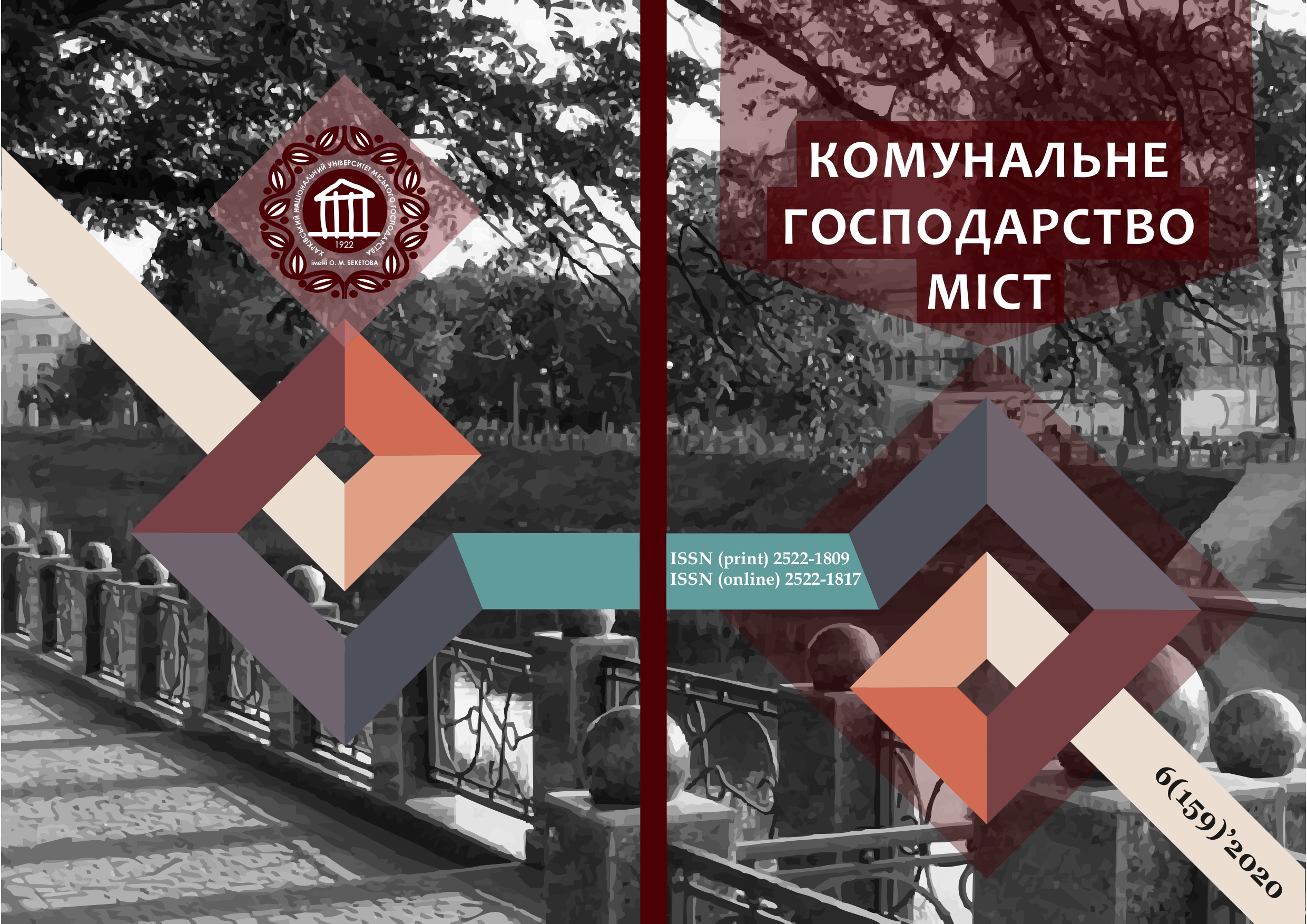STATISTICAL ASSESSMENT OF THE QUESTIONNAIRE SURVEY QUALITY FOR TRANSPORT FATIGUE IN URBAN PASSENGER TRANSPORTATION
Array
Keywords:
transport fatigue, questionnaire survey, reliability, validity, quality, correlationAbstract
The article deals with the problem of determining the transport fatigue of mass transit passengers as one of the human body states. The transport fatigue is proposed to be evaluated using the questionnaire method with subsequent quality assessment by the mathematical statistics methods.
References
2. Thomsen, A.A. (1971). Economic assessment of transport fatigue. Problems of Big Cities. Overview, 47, 10 p.
3. Kabakova, S.I., Segedinov, A.A., & Thomsen, A.A. (1971). Comprehensive urban planning assessment, Moscow, 45-71, 14.
4. Transport fatigue is not a myth. Retrieved from: https://medukrok.ru/rizne/19472-transportna-vtoma-ne-mif.html
5. About transport fatigue syndrome. Retrieved from: http://kotforum.ru/threads/О-синдроме-транспортной-усталости.10989/
6. Jing, Zhu, & Yingling, Fan. (2018). Daily travel behavior and emotional well-being: Effects of tripmode, duration, purpose, and companionship. Transportation research. Part A, 118, 360 – 373.
7. De Vos, J., Schwanen, T., Van Acker, V., & Witlox, F. (2013). Travel and subjective well-being: a focus on findings, methods and future research needs. Transport Rev., 33(4), 421 – 442.
8. Morris, E., & Guerra, E. (2015). Are we there yet? Trip duration and mood during travel. Transportation Research Part F: Traffic Psychology and Behaviour, 33, 38 – 47.
9. Karpov, A.V. (2005). Labor psychology. Moscow: Vlados-Press, 352.
10. Nguyen, D.K., Yuzhakov, M.M. (2015). Review of methods for assessing the human psychical and emotional state. Materials of the VI scientific and practical conference "Information and measuring equipment and technologies", 109-112.
11. Kopytkov, D., Levchenko, O., Rossolov, O., & Samchuk, G. (2018). Determination of the passenger transport fatigue in urban mass transportation. Municipal economy, 7 (146), 2–11.
12. Kopytkov, D. (2020). Analysis of methods for determining passenger transport fatigue in urban mass transit. Actual problems of science and practice. Abstracts of XІV International Scientific and Practical Conference, Stockholm, Sweden, 76–84.
13. Kopytkov, D., & Samchuk, G. (2020). A questionnaire technique for studying a passenger functional state in urban mass transportation. International scientific and practical conference "Science, engineering and technology: global trends, problems and solutions": Conference proceedings, Prague, 145–149.
14. Leonova, A.B. (1984). Psychodiagnostics of human functional states. Moscow: Moscow State University, 200.
15. Krushelnytska, Ya.V. (2003). Labor physiology and psychology. Kyiv: KNEU, 367.
16. Sharafkhaneh, A., & Hirshkowitz, A. (2018). Fatigue Management. Principles and Practices for Improving Workplace Safety. New York: Springer Science, 226.
17. Karelin, A.A. (2007). Big encyclopedia of psychological tests. Moscow: Eksmo, 416.
18. Burlachuk, L.F., & Morozov, S.M. (2003). Dictionary and reference book of psychodiagnostics. Saint Petersburg: Piter, 528.
19. Barkanova, O. V. (2009). Techniques for diagnosing the psychoemotional sphere. Krasnoyarsk: Literaprint, 237 p.
20. Friman, M., Fujii S., Ettema, D., Gärling, T., & Olsson, L.E. (2013). Psychometric analysis of the satisfaction with travel scale. Transport. Res. Part A: Pol. Pract., 48,132– 145.
21. Magamedeminova, M.M., Korotkikh, V.M., Polyakova, S.R., & Osokina, M.M. (2020). Signs of fatigue and overwork, their causes and prevention. Young Scientist, 8 (298), 74–75.
22. Kim, V.S. (2007). Testing of educational achievements. Ussuriysk: UGPI, 214.
23. Moroz, L.S. (2010). Methods for determining the reliability and validity of knowledge control tests. Proceedings of BSTU. Series VI. Physics, mathematics and informatics, Issue XVIII, 176–179.
24. Laktionov, A.N., & Lutsenko, E.L. (2006). Fundamentals of psychodiagnostics, psychometrics and testology. Kharkiv: V.N. Karazin National University, 64.
25. Min'ko, A.A. (2004). The MS Excel statistical analysis. Moscow: "Williams" Publ. House, 448.
26. Förster, E., & Rönz, B. (1983). Correlation and regression analysis methods. Moscow: Finance and statistics, 303.
27. Gmurman, V.E. (2003). Theory of probability and mathematical statistics. Moscow: Higher School, 479.
28. Lord, F.M., & Novick M. (1968). Statistical theories of mental test scores. Massachusetts: Addison-Westley Publ. Co. Reading, 585.
Downloads
Published
How to Cite
Issue
Section
License
The authors who publish in this collection agree with the following terms:
• The authors reserve the right to authorship of their work and give the magazine the right to first publish this work under the terms of license CC BY-NC-ND 4.0 (with the Designation of Authorship - Non-Commercial - Without Derivatives 4.0 International), which allows others to freely distribute the published work with a mandatory reference to the authors of the original work and the first publication of the work in this magazine.
• Authors have the right to make independent extra-exclusive work agreements in the form in which they were published by this magazine (for example, posting work in an electronic repository of an institution or publishing as part of a monograph), provided that the link to the first publication of the work in this journal is maintained. .
• Journal policy allows and encourages the publication of manuscripts on the Internet (for example, in institutions' repositories or on personal websites), both before the publication of this manuscript and during its editorial work, as it contributes to the emergence of productive scientific discussion and positively affects the efficiency and dynamics of the citation of the published work (see The Effect of Open Access).

